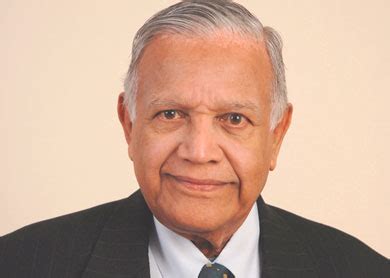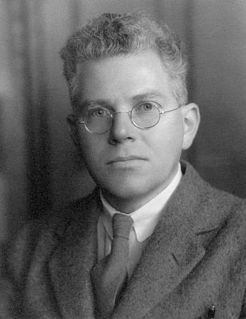A Quote by Joseph Rotblat
All nuclear weapon states should now recognize that this is so, and declare - in Treaty form - that they will never be the first to use nuclear weapons. This would open the way to the gradual, mutual reduction of nuclear arsenals, down to zero.
Related Quotes
What is the only provocation that could bring about the use of nuclear weapons? Nuclear weapons. What is the priority target for nuclear weapons? Nuclear weapons. What is the only established defense against nuclear weapons? Nuclear weapons. How do we prevent the use of nuclear weapons? By threatening to use nuclear weapons. And we can't get rid of nuclear weapons, because of nuclear weapons. The intransigence, it seems, is a function of the weapons themselves.
But elimination will only happen if all countries - nuclear and non-nuclear states - genuinely work towards this result. Nuclear states must abolish their arsenals, as was indicated by the unanimous opinion of the international Court of Justice, the highest international tribunal. The five nuclear states seem to expect others to refrain from obtaining bombs while at the same time maintaining their own caches of deadly weapons.
I don't want to use the term "nuclear weapons" because those people in Iran who have authority say they are not building nuclear weapons. I make an appeal to the countries who do have nuclear weapons. They don't consider them a nuclear threat. But let's say a country that doesn't have nuclear weapons gets involved in building them, then they are told by those that already have nuclear weapons that they oppose [such a development]. Where is the justice in that?
I, who had been in favour of nuclear energy for generating electricity ... I suddenly realised that anybody who has a nuclear reactor can extract the plutonium from the reactor and make nuclear weapons, so that a country which has a nuclear reactor can, at any moment that it wants to, become a nuclear weapons power. And I, right from the beginning, have been terribly worried by the existence of nuclear weapons and very much against their use.
Basically [United States and France] said "We will use nuclear weapons whenever it suits our purposes to do so." So this expansion of doctrines regarding possible use of nuclear weapons makes them more, you know, sort of, salient and important and so it's increasing the perceived political value of nuclear weapons and therefore causing or contributing to possible proliferation.
As far as U.S. intelligence knows, Iran is developing nuclear capacities, but they don't know if they are trying to develop nuclear weapons or not. Chances are they're developing what's called 'nuclear capability,' which many states have. That is the ability to have nuclear weapons if they decide to do it. That's not a crime.
The court was unable to rule on all circumstances in which nuclear weapons might be used, and it said in view of the problems, the risks posed by nuclear weapons, and in view of the lack of certainty of the law in all circumstances, the best course is fulfilling the obligation of good faith negotiations of nuclear disarmament contained in the nuclear non-proliferation treaty.
Presidents should be very careful at all times in discussing the use or non-use of nuclear weapons. Presidents since the cold war have used nuclear deterrence to keep the peace, and I don't believe that any president should make any blanket statements with respect to the use or non-use of nuclear weapons.

































